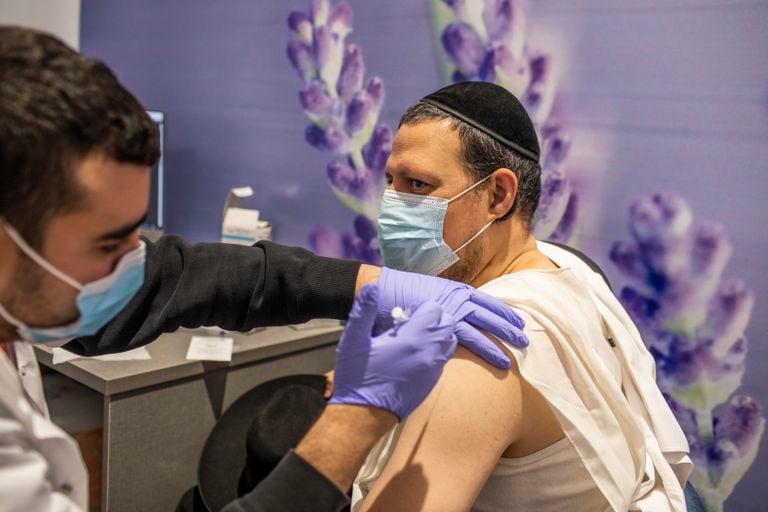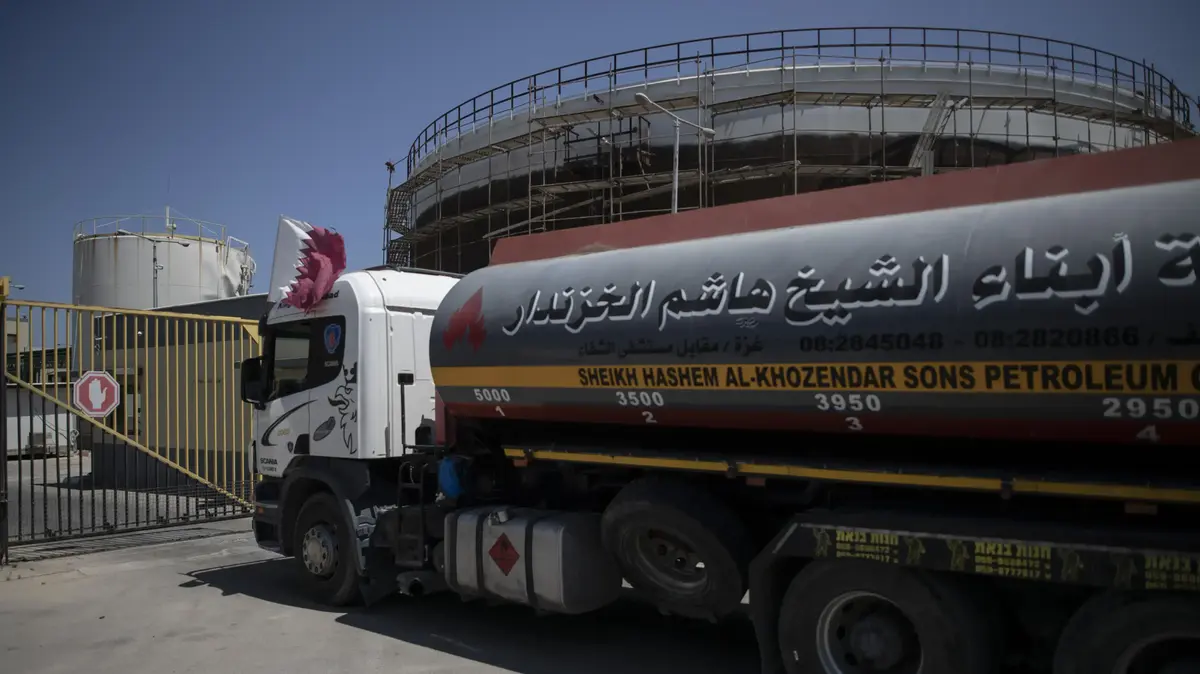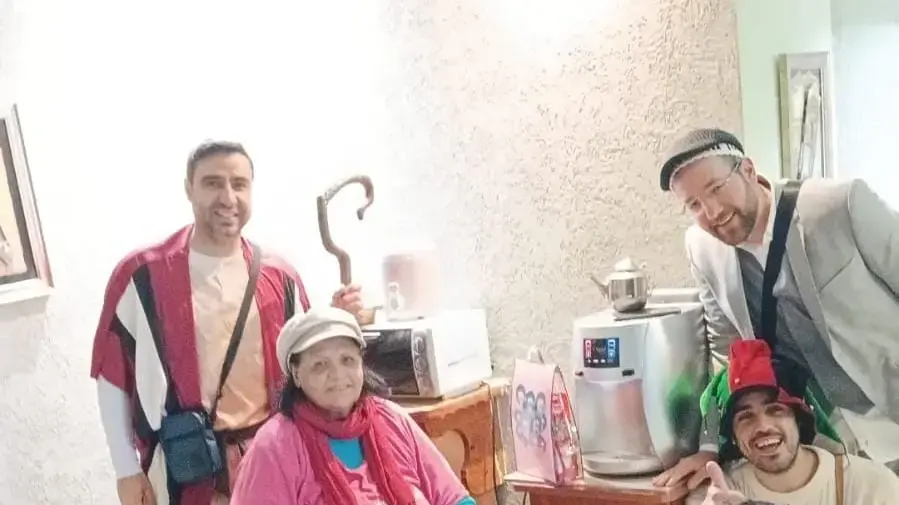A man receives the Pfizer vaccine in Jerusalem on January 11, DPA via Europa Press / Europa Press
Israel started with an advantage.
It is the perfect Ohio for pharmaceutical companies, the ideal health barometer to study vaccination against COVID-19.
With just over nine million inhabitants in a narrow, well-connected territory, it has a solid public health system interconnected by a state-of-the-art database.
And why not Belgium or Austria, with similar populations and circumstances?
The Jewish state, in which only 4,260 people have died from the coronavirus, has other circumstances in its favor.
It is an isolated country, with strict control of sealed borders, and its diverse citizenship also forges a melting pot of ethnic groups.
Its merits are remarkable, but how has Israel managed to close express deals to receive ten million doses of the vaccine from Pfizer-BioNTech and another six million from Moderna, in addition to an as-yet undisclosed amount from AstraZeneca?
Faced with those who accuse the Government of using its citizens as guinea pigs in a large-scale clinical trial and of having accepted the payment of premiums above the usual price, in a bid to obtain the vials in the first place, the Ministry of Health replies that only general patient data is transferred to the manufacturers of the drugs, without identifying them in any case, without identifying them in any case.
In a month-long vaccination campaign - which Prime Minister Benjamin Netanyahu launched on December 19, with a desire for exemplarity and no hidden prominence - more than a quarter of Israelis have received at least the first dose of the injection of Pfizer-BioNTech.
And soon one in ten, the oldest and those included in risk groups, the second and final.
In percentage of the vaccinated population, Israel tops the world list compiled by Our World in Data, followed by the United Arab Emirates, the United Kingdom and the United States.
Spain occupies the eleventh position, with 2.36% of inoculated, according to the information available on Friday.
The technological and logistical capacity of the Hebrew State - which stores up to five million doses under optimal refrigeration conditions at the facilities of the Teva pharmaceutical company near the Tel Aviv airport - have allowed it to face a large-scale lightning operation.
In the middle of the third wave of the pandemic, the accelerated vaccination program now exceeds 200,000 daily inoculations.
Not a dose is wasted in Israel.
Groups of young people coordinated through WhatsApp queue at dusk in front of the immunization centers to offer themselves as candidates to receive the remaining Pfizer vaccine injections and that are about to lose their effectiveness after exceeding the limit of staying outside the strict Cold chain.
With the Israelis confined from December 26 until next December 31, the Executive has ordered the closure of the Ben Gurion airport in Tel Aviv as of Tuesday to contain the entry into the country of new strains and variants of the coronavirus.
After the peak of more than 10,000 infections a day (a positivity rate of over 10%) began to flatten last week, citizens continue to flock to centers such as the one installed in the Arena de Jerusalem sports center, which It has expanded its reception capacity with dozens of positions with nurses for all those over 35 years of age.
After having vaccinated 80% of citizens over 60, the program has been extended from the weekend to students between the ages of 16 and 18 so that they can sit for the end of secondary exams.
It was precisely Netanyahu - who must submit to the fourth legislative elections in less than two years on March 23 - who revealed at the beginning of the month that the contract with Pfizer included the transfer of health data of those vaccinated in exchange for giving preference to Israel in supply.
"Israel is going to become a model for the world, a pilot experience, and it is going to be the first country to emerge from the coronavirus," boasted the prime minister, who has concentrated almost all his public activity on the vaccination program.
The confinement has meanwhile suspended the corruption trial against him that was to have started in January in a Jerusalem court.
By nature suspicious after centuries of discrimination and pogroms among Jews, many Israelis began to fear for the security of their confidential medical data in the hands of a multinational pharmaceutical company.
The Government has had no choice but to make public the 20 pages of the contract signed with Pfizer, which speaks of a "collaboration agreement to determine with what percentage of vaccination the herd immunity is achieved."
The German company BioNTech has specified that the object of the contract is "to monitor the evolution of the pandemic over time based on different vaccination rates" by transferring epidemiological data, such as the number of confirmed cases, hospitalized patients or undergoing assisted ventilation, of deaths from covid-19 and age, gender or demographic variables.
The paragraphs that refer to commercial aspects were crossed out before the document was distributed to the press.
The price paid is kept secret, although Pfizer has referred to a "tiered fee based on purchase volume and speed of delivery."
A senior Israeli official revealed to Reuters that his government was paying "around $ 30 (24 euros) per dose."
It is double that offered by the European Union, as revealed in December by a person in charge of the Belgian Administration.
The dilemma over the expeditious shipment of vaccines to rich countries with a developed health system in the face of the absence of supplies to impoverished states and without health means is fully reflected in the Holy Land, where nearly five million Palestinians have not yet been able to be vaccinated.
The Palestinian Authority, which has signed agreements with AstraZeneca, hopes to start inoculating its citizens in the coming days after receiving the first vials of the Russian Sputnik V vaccine. The World Health Organization (WHO) hopes to be able to protect before it ends 2021 to 20% of the population of countries with a lower level of development through the COVAX fund for global access to vaccines.
"We told Pfizer and the rest of the manufacturers that if we were one of the first to undertake vaccination they will have results (in the form of data) very soon," Israeli Health Minister Yuli Edelstein told the Hebrew press.
Ethical concerns about the privacy of medical records have been tried to be dispelled with guarantees that personal information will only be provided in a disaggregated and unidentified form, for statistical purposes.
The contract specifies that "in the event that the data provided accidentally reveals the identity of a patient, Pfizer must treat it confidentially and return it to the health system."
It also obliges the pharmaceutical company to "refrain from obtaining information about patients from the data it receives."
Information about the coronavirus
- Here you can follow the last hour on the evolution of the pandemic
- Restrictions search engine: What can I do in my municipality?
- This is how the coronavirus curve evolves in the world
- Download the tracking application for Spain
- Guide to action against the disease















